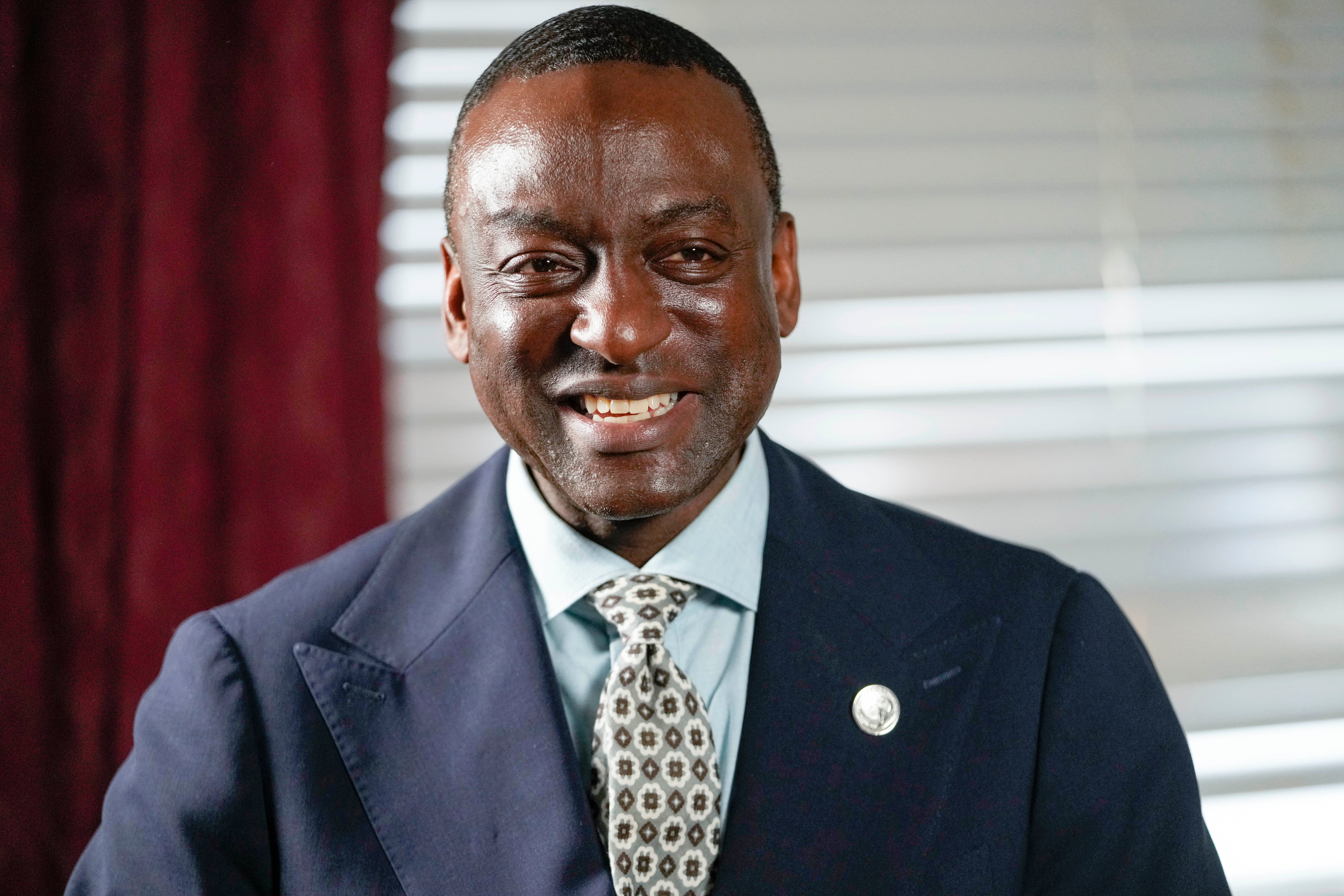Exonerated member of 'Central Park Five' wins primary, nearly assuring seat on NYC Council
A member of the “Central Park Five” is a step closer to winning a seat on the New York City Council

Yusef Salaam, one of the exonerated “Central Park Five,” has won the Democratic primary, all but assuring him a seat on the New York City Council. It’s an improbable feat for a political novice who was wrongly accused, convicted and imprisoned as a teenager for the rape and beating of a white jogger in Central Park.
Salaam's primary win is for the seat representing Central Harlem on the City Council. The Associated Press refrained from calling the race on election night but additional votes released Wednesday showed him to be the clear winner.
“I am here because, Harlem, you believed in me,” Salaam said in his victory speech Tuesday night.
Salaam and the four other Black and Latino teens from Harlem became known as the “Central Park Five” after their arrest in 1985 in the headline-grabbing rape, one of the city’s most notorious and racially fraught crimes. He served nearly seven years in prison before the group was exonerated through DNA evidence.
His outsider campaign prevailed over two seasoned political veterans — New York Assembly members Inez Dickens, 73, and Al Taylor, 65 — in his first bid for public office. The incumbent, democratic socialist Kristin Richardson Jordan, dropped out of the race in May but remained on the ballot.
Salaam declared victory on election night with his vote tally barely exceeding 50%, even though an unknown number of absentee ballots were yet to be counted. But his lead over Dickens, his nearest competitor, seemed insurmountable, and both she and Taylor conceded.
While all three candidates focused on promoting affordable housing, controlling gentrification and easing poverty in Harlem, Salaam capitalized on his celebrity in neighborhoods that consider the Central Park Five — now the Exonerated Five — living symbols of the injustices faced by the Black and Latino residents who make up about three-fourth’s of the district’s population.
Zambi Mwendwa said she voted for Salaam because he is “a new face.” She said her decision had nothing to do with the injustice in his past.
“I’ve heard him talk. He seems to be talking about the things I care about," Mwendwa said on election day.
But for many others, Salaam’s status as a member of the Central Park Five was a motivating factor.
“He comes from the neighborhood, and he was incarcerated then turned himself around,” Carnation France said. “He’s trying to do something for the people.”
Salaam's lack of experience in public office might have actually worked in his favor, according to Amani Onyioha, a partner at Sole Strategies, which ran phone banks and engaged residents on Salaam’s behalf.
“In a time like this, when people are looking for a hero, they're looking for somebody who can relate to them,” Onyioha said.
“I think people saw him as a survivor," Onyioha said. “He was vindicated and the system eventually ended up working out for him.”
Salaam moved to Georgia shortly after he was released and became an activist, a motivational speaker, an authoor and a poet. He returned only in December to launch his campaign.
Salaam was 15 when he was arrested along with Antron McCray, Kevin Richardson, Raymond Santana and Korey Wise, who served between five and 12 years in prison before prosecutors agreed to reexamine the case. DNA evidence and a confession ultimately linked a serial rapist and murderer to the attack, but he wasn’t prosecuted because too much time had passed. Their convictions were vacated in 2002 and the city ultimately agreed in a legal settlement to pay the exonerated men a combined $41 million.
A 2012 Ken Burns documentary called “The Central Park Five” rekindled public attention on the men's childhood saga. More recently, a 2019 television miniseries, “When They See Us,” drew attention again, just before the Black Lives Matter Movement was launched in response to the killing of George Floyd by a Minneapolis police officer.
Donald Trump, who in 1989 placed ads in four newspapers before the group went on trial with the blaring headline, “Bring Back the Death Penalty,” later refused to apologize, saying all five had pleaded guilty, a reference to their coerced confessions. Salaam reminded voters of that in April, putting out his own full-page ad, headlined “Bring Back Justice & Fairness,” in response to one of Trump's indictments.
Burns and his codirectors applauded Harlem voters for “electing a man who has dedicated his life to reconciliation.”
Bookmark popover
Removed from bookmarks